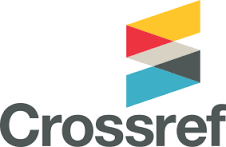Strengthening Consumer Experience In Digital Economy Development
Abstract
The development of the digital economy requires strengthening the consumer experience. This research was conducted by examining the relationship between digital economy security when shopping on ecommerce, output quality, customer utility, and the intention to recommend ecommerce to others. The survey was conducted at one of the ecommerce sites in Indonesia, namely Shopee, to test the above relationship and as many as 225 Shopee consumers were involved in the survey. The data collection method used in the study was to distribute questionnaires directly to the respondents. The collected data was then analyzed with a structural equation model. The results of the analysis show that digital economy security when shopping on ecommerce and output quality has a positive and significant effect on customer utility. Furthermore, customer utility has a significant positive effect on consumer recommendations. The results of this analysis indicate that ecommerce must always maintain transaction security and the quality of the output offered so as to provide utility to customers. This utility is important for the development of ecommerce because it encourages customers to recommend the ecommerce to other consumers.
Keywords
Full Text:
PDFReferences
Amanda, L., Yanuar, F., & Devianto, D. (2019). Uji Validitas dan Reliabilitas Tingkat Partisipasi Politik Masyarakat Kota Padang. Jurnal Matematika UNAND, 8(1), 179. https://doi.org/10.25077/jmu.8.1.179-188.2019
Bukht, R., & Heeks, R. (2018). Defining, conceptualising and measuring the digital economy. International Organisations Research Journal, 13(2), 143–172. https://doi.org/10.17323/1996-7845-2018-02-07
Burhanudin, B. (2015). A Simplified Method for Understanding Judgment and Decision Making of Muslim Consumers. In B. Rishi (Ed.), Islamic Perspectives on Marketing and Consumer Behavior. Hershey: Business Science Reference. https://doi.org/10.4018/978-1-4666-8139-2.ch001
Fadhli, O. K., & Pratiwi, N. D. (2021). Pengaruh Digital Marketing, Kualitas Produk, dan Emosional terhadap Kepuasan Konsumen Poskopi Zio Jombang. Jurnal Inovasi Penelitian, 2(2), 603–612. https://doi.org/10.47492/JIP.V2I2.684
Hair, J. F., Risher, J. J., Sarstedt, M., & Ringle, C. M. (2019). When to use and how to report the results of PLS-SEM. European Business Review, 31(1), 2–24.
Lamirin, L., Wijoyo, H., & Sutawan, K. (2021). Analisis Pemasaran Digital dan Perkembangan Mental di Provinsi Riau. Jurnal Penelitian Dan Pengabdian Kepada Masyarakat UNSIQ, 8(3), 227–231. https://doi.org/10.32699/ppkm.v8i3.1918
Maharani, R. A. N., & Alam, I. A. (2022). Pengaruh Kualitas Produk dan Harga terhadap Kepuasan Konsumen selama Pandemi Covid-19 pada Kebab Salahuddin. Sibatik Journal, 1(4), 235–242.
Mayasari, M., & Audina, A. (2020). The Influence of E-Service Website E-Commerce Quality to E-Customer Satisfaction. Proceedings of the First International Conference on Applied Science and Technology (ICAST 2018), 298(iCAST 2018), 73–77. https://doi.org/10.2991/assehr.k.200813.018
Misra, P., & Pandey, A. (2022). Factors Influencing Customers Loyalty towards Electronic Commerce. Proceedings of the 2nd International Conference on Sustainability and Equity (ICSE-2021), 2, 147–154. https://doi.org/10.2991/ahsseh.k.220105.018
Nguyen, T. T. N. (2020). Developing and Validating Five-construct Model of Customer Satisfaction in Beauty and Cosmetic E-commerce. Heliyon, 6(9), e04887. https://doi.org/10.1016/j.heliyon.2020.e04887
Oliveira, T., Tomar, S., & Tam, C. (2020). Evaluating Collaborative Consumption Platforms from a Consumer Perspective. Journal of Cleaner Production, 273(November), 123018. https://doi.org/10.1016/j.jclepro.2020.123018
Paspuel, O. G. A., Hernández, S. del R. Á., Morales, L. G. C., & Gudiño, C. W. M. (2021). Inteligencia Emocional En Estudiantes De La Universidad Autónoma De Los Andes. Revista Conrado, 17(78), 127–133.
Pradana, M. (2015). Klasifikasi Jenis-Jenis Bisnis E-Commerce. Jurnal Neo-Bis, 9(2), 32–40.
Santosa, A. T. (2019). Pengaruh Kualitas Pelayanan, Kualitas Produk, Store Atmosphere, dan E-Wom terhadap Proses Keputusan Pembelian (Survei terhadap Konsumen Zenbu-House of Mozaru Paris Van Java, Bandung). Jurnal Manajemen Maranatha, 18(2), 148–158. https://doi.org/10.28932/jmm.v18i2.1613
Vasić, N., Kilibarda, M., Kaurin, T., Vasić, N., Kilibarda, M., & Kaurin, T. (2019). The Influence of Online Shopping Determinants on Customer Satisfaction in the Serbian Market. Journal of Theoretical and Applied Electronic Commerce Research, 14(2), 70–89. https://doi.org/10.4067/S0718-18762019000200107
Vildayanti, R. A. (2019). Analisis Pengaruh Customer Delight (Adil dan Jujur(Justice),Pelayanan Terbaik (Esteem) dan Surprised/Finishing Touch) terhadap Loyalitas Pelanggan Es Teler 77 di Jakarta Pusat Tahun 2019. JABE (Journal of Applied Business and Economics), 5(4), 315–339. https://doi.org/10.30998/JABE.V5I4.4182
Wibowo, A. (2021). Pengantar Pemasaran Bisnis Digital. Yayasan Prima Agus Teknik.
Wisnu, I. G., Chandra, S., Wulan, R., Wijaya, N., Teknologi, F., Mulia, U. B., & Utara, J. (2022). Perbandingan Pengaruh Promotion Mix terhadap Keputusan Penggunaan Digital Wallet pada E - Marketplace. Bisma: Jurnal Bisnis Dan Manajemen, 16(1).
DOI: https://doi.org/10.21107/mediatrend.v18i1.17579
Copyright (c) 2023 Media Trend


















